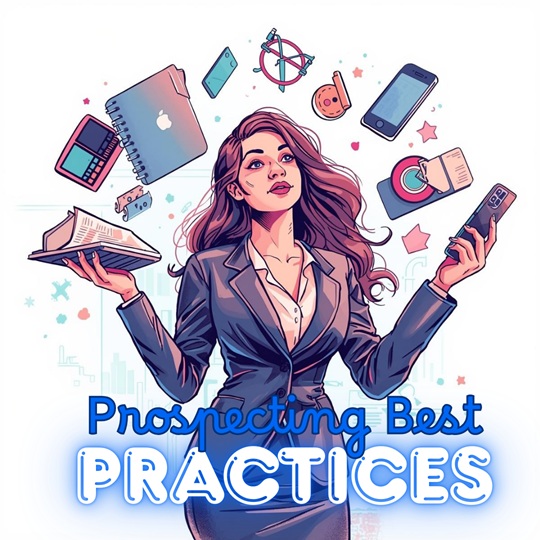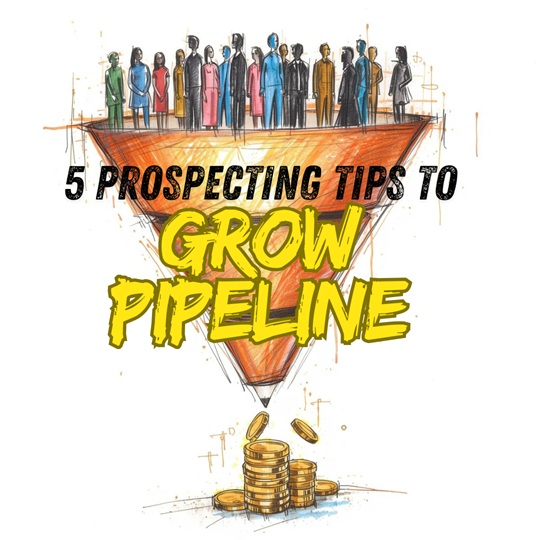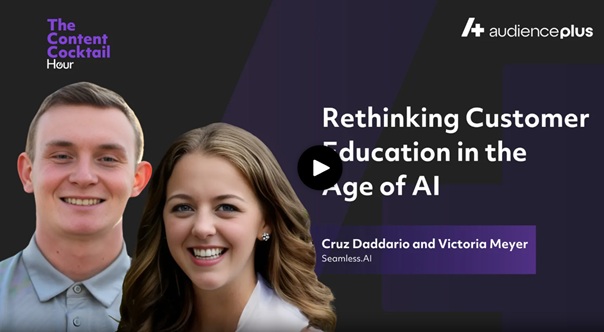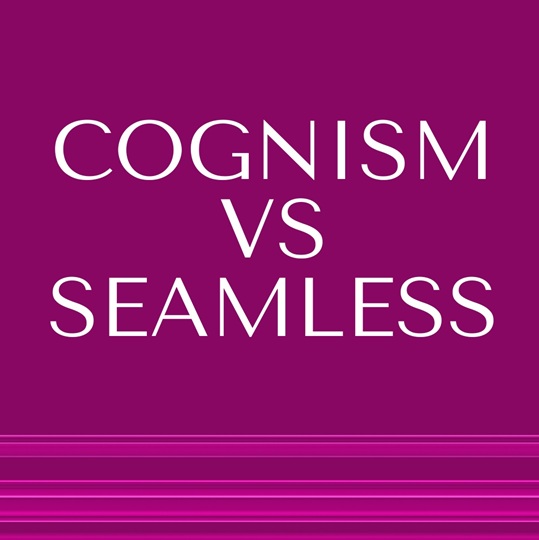The first time I heard about AI writing tools my first thought was, “Wow, I spend countless hours and days writing content–yet an AI tool spits out a top-ranking article in minutes.”
I had no idea what to expect from the algorithmic gods of search engines (namely Google) with AI shaking up the industry, plus the looming possibility of living in a world without Google.
Whether the idea of Google ceasing to exist is unfathomable or simply too existential for your liking, here’s what I’ve learned over the past year:
AI is setting new standards for search engine marketing.
Who knows what will happen if Google becomes broken up, or if another search engine platform will continue to dominate the search engine market? Rather than pondering the future of these huge multi-billion dollar companies, let’s start with a few trends in search marketing and AI:
- AI is shifting SEO to UXO (user experience optimization).
- Every content team is using AI right now, but most haven't figured out how to leverage its power for more than just efficiency.
- AI shouldn’t replace authentic, experience-based content from humans.
Think about all of the AI content being created. Reports estimate that there could be as much as 90% of the content online written by AI by 2026.
Would there be more AI-generated content flooding our feeds without Google’s core updates and penalties? Or would it become a more fair world where users can choose from a variety of search engines, and select the one that best serves their needs, instead of being limited to the one dominant platform on the market?
(Which might be what the DOJ is looking for with their declaration that Google is a Monopoly).
In this article, we’ll dive into the possibilities of how search marketing will evolve in the coming months–plus I’ll share a few examples from my own work to show you how I’ve been experimenting with AI these past few months.
Let’s get right into it.
Lesson #1. AI is changing content creation from SEO to UXO.
SEO is evolving into a new era: user-focused content creation and personalization instead of optimized for generic keyword terms to earn search engine real estate.
UXO is user experience optimization. It’s all about making the user experience with a search engine more useful, helpful, and relevant. The content has to meet the intent of the user and fulfill their needs rather than just regurgitating the same information as everyone else.
Useful, helpful, and relevant content has always been the guiding pillars for SEOs, but the standard search marketers are aiming for is even higher now with AI in play.
“AI created a new standard that is our benchmark. Now, everybody has access to AI, everybody can put that out on their site–that is now the starting point. I always tell the writers: If we’re not beating what AI can do, then it’s not going to work. That’s our standard.”
- Salvatore Surra, Director of SEO and Content at Seamless.AI in The Content Cocktail Hour podcast by The Juice

If content marketing teams everywhere are using AI tools to help them either create content or streamline their workflows, search engines are going to be inundated with much more generic, AI-generated content. They are going to have to adapt to figure out ways to crawl, index and rank all of this similar content.
It’s already happening. According to a study by Ask Optimo:
- Nearly 4 out of 10 top-ranking articles (35.8%) on Google are AI-assisted content
- AI fully generates 61% of the AI-assisted content
- More than half (54%) of AI-written content appears on the first page of Google search results
In just a short period of time, AI is now the new standard content marketers are working and competing with to create new content.
If more than half of the first page of Google search results show AI-written content, content marketers need to see what’s working for those top ranking AI results and figure out how to differentiate or improve on it for their own content to do better.
The only answer to standing out in an overcrowded sea of AI-written content is doing what AI can’t do on its own: providing original, personal stories with direct experience or perspective and delivering the information in a way that’s useful and helpful.
AI can easily figure out the SEO basics to spit out a keyword-heavy article, but it can’t manage to create a satisfying, human-intriguing approach that users’ will enjoy for their search engine experience.
A good user experience for SEO is one that allows users to find content that is relevant, helpful, useful, original, authoritative, and serves the search intent in a valuable way.
Let’s say you’re searching for the best marketing companies in Los Angeles, CA.
Your search inquiry might be “top marketing companies in LA.” If the only search results that come up are individual ads from marketing companies, you might have to do additional search queries being more specific or changing things up to find what you’re looking for
More efficient search results would be business directory lists of the top marketing companies in LA, company details, and more up-to-date and relevant information (like the free marketing business directory👀 from Seamless.AI).
According to the UX Design Institute, SEO and UX share one common goal: creating accessible, user-friendly sites that give people exactly what they’re looking for.
They also say:
“If you want to maintain a good ranking in the search results, you need to keep visitors on your website. And, if you want to keep visitors on your website, you need to provide a good user experience.”
There’s no silver bullet to doing SEO (ever), so creating a good user experience for search engine users is all about making things easier for them to consume or digest the necessary content.
Here are the top 5 factors you should consider for SEO and AI to create a good user experience:

1. Optimize your content for zero-click searches.
Zero-click searches = Good UX for search marketing.
Zero-click searches are where the user’s query is answered directly on the SERP, often through features like Knowledge Graphs, Featured Snippets, or Local Packs.
Here’s an example of one of our customer education pieces that’s been optimized for zero-click searches:

Another great example of zero-click searches is optimizing your content for Google AI Overviews, which is like the final boss SERP snippet you want to aim for nowadays.
It uses AI to generate a concise, direct answer for the search inquiry and shows up at the top of the page.
Here’s another example. This is an article we wrote that shows up as a Google AI Overviews snippet for the query “b2b sales statistics”:

The bottom line here ensures your content delivers exactly what the searchers are looking for. This line also ensures that your article is visible and crawlable for Google or AI search engines. The search engine in turn, rewards you by making a zero-click search snippet out of your content.
2. Use AI to optimize your content layout, navigation, and information.
No one wants to click on a search result that leads them to a hard-to-read, ad-filled website. Use AI to improve how you’re delivering content to create a seamless SEO experience.
3. Do your keyword and topic research with the help of AI.
There’s a plethora of SEO keyword research tools out there, but you can also use AI to help you find related keywords and brainstorm topics that are relevant to your parent topic while also using AI to fully understand the information needed for the content.
4. Slow page loading speeds will sabotage your content’s success.
No matter how great your content is, people will click out and exit faster than you can say “bad UX.” Make sure you’re not overloading your content with enormous images, rich media, and heavy embeds. Use techniques like lazy loading images, which Google recommends in order to deliver higher quality content in an efficient way.
5. Link-building builds your authority both to users and search engines.
In SEO, getting other websites to link back to your website signals to search engines that your content is relevant, useful, and authoritative. For users, this helps them find more related resources and content for their search inquiry. This applies to both internal and external links. Google has always said if you are not willing to link to your own stuff then why would anyone else.
There’s so much more to creating a great user experience in SEO, but the main goal is to make things easy for users to find what they’re looking for.
Example of high-ranking, differentiated content through good UX.
To stand out from AI-generated content, search marketers should also focus on providing unique and helpful content that their audience can’t find elsewhere. That’s a no-brainer.
But when it comes to writing on a topic that’s been covered a million times, the tricky part is knowing how to differentiate and present the information in a way that serves the users better than other search marketers.
Here’s what I did recently to differentiate my content that helped my article rank #2 in Google Search results:

I wrote two blog articles for the search queries “top medical conferences in 2025” and “sales conferences 2025.”
First, I did a quick Google search to see the top-ranking pages for each query. The search results at the time were only showing older articles for conferences in 2024 in simple list formats.
I knew the information I was presenting would be similar to others–there’s not much creativity involved in telling people event details and logistics.
So my strategy was a simple, twofold approach.
First, I noticed that most of the search results focused on events in 2024. Guess what? 2025 is already on our doorstep (whether we want to admit it or not).
So I chose to start compiling information on events in 2025. This would give searchers new events to look forward to and help my content stay relevant longer since there was still a lot of time to start 2025 event planning.
Second, I chose to differentiate my sales conference list through rich media content embedded in my article. I didn’t want to just write another boring ole’ list, so I created a filterable database of all of the events in Airtable that readers can bookmark and come back to. I embedded this at the top of my article so readers could immediately get what they needed without having to read the whole article.
Here’s what the embedded Airtable looks like for the sales conferences list:

Why it worked:
Whether it was through rich, unique media embeds like an Airtable or differentiating the content from other ranking search results, I focused on presenting the information in a way that would ultimately make it super easy for users to find what they’re looking for.
There were many other factors I considered to differentiate the content from other ranking pages, but you can check those articles out for yourself here:
📑 Top Sales Conferences in 2025 and List of 70+ Top Medical Conferences in 2025
TLDR? Key takeaways:
- AI content can rank on Google if it’s valuable, useful, and matches search intent. Use that as your quality standard and create even better content.
- Create content that makes the user experience seamless and spares people the effort of multiple search queries.
- Focus on answer-engine optimization, not just search engine ranking. In other words, optimize your content for the users.
Lesson #2. Not every content team knows how to use AI beyond efficiency
According to the State of (Dis)Content Report, the majority (67.2%) of content marketers believe in the utility of AI and its potentially positive impact over the next five years.
47.3% said the biggest benefit of using AI in content marketing is increased productivity. 46.9% said AI reduced manual effort, and 44.4% said it helped them create content more quickly.
It’s great to know that other SEO content marketers are embracing AI, but is content creation and search marketing all AI is good for?
As more people start learning how to create AI chatbots, personas, and ChatGPT assistants, we might see positive sentiment for AI increase drastically for content marketers.
The only problem is, not everyone knows how to really use AI to its full potential.
According to the same report, the top three biggest challenges in content creation are:
- Differentiating content
- Creating the right content for their audience
- Creating “quality” content
While using AI to boost the efficiency and volume of content production is helpful, content marketers aren’t using AI to address more pressing issues.
Here’s what SEOs and content marketers should be focusing on with AI for content creation:
- Brainstorming unique content premises: AI tools can analyze large datasets, including competitor content and audience insights, to identify new topics or fresh angles you may not have thought of yourself.
- Repurposing existing content into different formats: You can use AI to repurpose blog posts into videos or infographics. This expands the reach of your content and caters to different audience preferences.
- Putting an end to writer's block: AI writing assistants can offer suggestions for phrasing and structure. They can even generate creative prompts that eliminate writer’s block and help get your creative juices flowing.
- Develop a “content code”: You can use AI-powered writing assistants to analyze your existing content and identify patterns in language, style, and tone. One of our recent favorite AI tools for that is Google’s Notebook LM.
- Training AI on your brand voice: Some AI writing tools allow you to train the model on your brand's specific voice and tone by feeding it examples of your best-performing content. This allows the AI to generate content that aligns with your brand's unique style and messaging.
- Improving content quality: AI can analyze your content and identify areas for improvement, suggest new ideas or angles, or tell you what’s missing.
- SEO optimization: AI-powered SEO tools can analyze keywords, search trends, and competitor strategies to optimize your content for better search engine rankings.
- Improving readability and clarity: You can use AI tools to analyze how clear and easy your writing is. Train the tool to consume your content like your target audience and learn where you can improve.
Example of using AI beyond efficiency
If you haven’t heard yet, we recently launched a free business directory for users to find top companies and firmographics in over 30 industries (not a flex, just an FYI).
The challenge for me was to start creating lots of content tailored to diverse audiences.
Up until this point, I had only dabbled a bit with ChatGPT and other AI writing tools for idea generation, keyword research, and reformatting copy I had already written–mostly for efficiency’s sake.
Thanks to my boss, Salvatore Surra (Director of SEO and Content), he taught me a thing or two about training ChatGPT to assume a specific persona for each industry.
This was the turning point for me in creating a whole batch of articles for different industries.
I was able to create different personas for each industry in ChatGPT, feed it specific and relevant information, sources, and questions about each industry, and create content optimized for specific search queries without sounding like another generic, AI-generated article.
Here’s an excerpt from one of my favorite industry content pieces from this experience:

Here’s my disclaimer: I did not use AI to generate all the copy.
The only thing I needed ChatGPT’s help with was figuring out specific, niche gaming references that only hardcore gamers or gaming industry professionals would know. I wanted to give it an “IYKYK” vibe.
If you’re not in the gaming industry or a game-enthusiast, you might not even know what the “Faker vs Ryu” match even means. I myself had no idea until I trained my ChatGPT assistant to provide this niche reference.
I also used ChatGPT to help incorporate more gaming-specific terms, like “outplay” or “mirror match.”
Simple details like this help my content stand out from other gaming lists because it’s more tailored and personalized to the audience that I’m speaking to.
Learning how to use AI tools comes with a bit of a learning curve for everyone, but in order to truly stand out with your content and score some high-ranking pieces you need to find new ways to make AI your assistant, not your crutch.
Lesson #3. Authentic content will always win.
“Nothing can replace the human writers, the insight, the perspective, the experience. And that’s really what we found is more valuable than some of these [AI] tools.”
- Salvatore Surra, Director of SEO and Content at Seamless.AI
Watch the full episode on The Content Cocktail Hour to learn about SEO Success in The Age of AI
Everything we do in life is to connect with others and build meaningful relationships–even in search engine marketing and content creation.
We can use AI tools to help us work faster, produce more content volume, or streamline manual tasks. But the one thing that we can’t fake is authenticity.
Being authentic is about being able to really dig into those unspoken, intangible thoughts, feelings, and intrinsic motivations in both ourselves and in others around us. And as search engine content marketers, it’s a tough balancing act with the pressing need to optimize, optimize, optimize.
There are certain concepts and ideas that cannot be fully understood or experienced by AI that resonate deep to our core as humans, whether it’s culturally, socially, or just in our nature.
Take for example, the South Korean term “han.” You can do a quick Google search or ask ChatGPT what this means, but you’ll probably get a definition along the lines of:
“A concept of an emotion, variously described as some form of collective, unresolved grief or resentment, among others, that is said to be an essential element of Korean identity by some, and a modern post-colonial identity by others.”
There’s no way someone who’s not familiar with Korean culture could grasp that definition on their own.
But do you know what resonates? Anecdotes and relatable life experiences, like this article “The Han Flowing Through My Veins,” that crafts a more personal narrative about the concept of Han. Or for me specifically, hearing and experiencing Han myself, through my Korean parents.
This is the kind of content that’s going to consistently win over and over again–despite the ups and downs of Google’s core updates.
AI might be able to help me think of creative ways to deliver and present my experience with the concept of “han,” but AI will never be able to replace my vivid and intimate experience with it.
I have my own opinions and core memories that help me form a unique point of view on this ambiguous concept, and that is exactly what I would rely on to help me create content that stands out from the rest of the search results if you were to type “What is Korean han?” in Google.
Don’t just take it from me, take it from Danny Sullivan, Google Search Liaison:
"People are trying to get more authentic information. They want to hear from other people with experiences they value, and we want to show it when it's relevant or when we actually think it's of good quality or that it will be helpful just like we want to do with any kind of content that's out there."

The one thing to remember from this quote is to share authentic information or experiences that people value.
Of course, when it comes to search engine marketing, not every search query is as complicated as a niche concept like “han.”
Most content marketers in the B2B space are probably focused on less emotionally-charged content topics like how-to guides, listicles, webinars, data reports, and more.
My point is that whether you’re creating content for a B2B SaaS audience or a specific cultural community, the key to standing out is sharing a unique perspective that:
- Resonates well
- Gives your audience exactly what they’re looking for (and more)
- Creates a sense of connection between your brand and your audience
You can apply this mindset to any piece of content, whether it’s through LinkedIn, Medium, blog articles, video webinars, etc.
Like our Director of SEO and Content, Sal Salvatore says, simply using AI for your content isn’t what will help you win over your audience or the algorithmic gods of Google:
“I've read tons of LinkedIn posts and other ones that are like, ‘Oh man, you just go to these tools, put in a keyword, put in a title and then you just crank them out and just add them to your site.’ I would really recommend not doing that. Google does not seem to be favoring that content very well.”
Let’s say you decide you want to rely more on AI to help you create content. Go ahead and test out various AI tools to help you do keyword research, generate new meta descriptions, and H1 titles.
But if you decide to go that route, make sure you’re still letting your unique perspective shine through. It’s all about branding.
Danny Sullivan (Google Search Liaison) emphasizes how important branding is for SEOs optimizing their content for the future of search:
"Brands are an important thing. They say to people, especially if you're a good brand, that you kind of stand for something that people recognize."
And thinking about branding isn’t just for the big dogs. Even smaller websites can and should think of themselves as influential brands. Building a strong brand, regardless of size, helps build trust with users and can signal quality to search engines.
Building authenticity through UGC-generated content
So how do you build your brand through content?
As we venture into 2025, one key search marketing trend is UGC (user-generated content).
Online forums like Reddit are capitalizing off of the benefits of UGC, and Google is prioritizing these websites. It’s all about sharing real human experiences and personal insights (and meeting certain quality and relevance standards!).
Here are some types of UGC content you can leverage to build a more authentic brand presence:
- Testimonials and reviews
- Case studies and success stories
- Social media posts and mentions
- Employee-generated content
- User-created blog posts and articles
- Videos and images showcasing product use
The Future of SEO and AI
SEO isn’t dead, but it’s definitely adapting to the changing digital environment with AI.
Here are a few key areas where SEO professionals should focus their attention:
- Authenticity and user-focused content: Your goal should be to create high-quality, authentic content that gives users what they need. Users are people, and people want firsthand, trustworthy information through engaging storytelling, expert insights, and a genuine passion for the subject matter.
- Understand user intent: Think like your target audience. AI-powered search features, like Google AI Overviews, are already attempting to anticipate user needs and streamline the search experience.
- Embrace AI for creative direction, not just efficiency: As AI evolves, there’s so much more you can do with it for content creation than mass-producing blog posts. Embrace AI, learn the hacks, and continuously evolve with it.
- Personal outreach and public relations: Earning good quality authoritative links are helpful for not only building brand equity, but attracting new users and folks looking and searching for the brand. Building content that resonates with industry publishers is helpful to market and promote content.
Here are some words of advice from Danny Sullivan, Google Search Liaison:
"When you're in doubt about anything and you're like I don't know if Google will like it, just ask yourself: Do I think that people coming to my site will like this? Do I think if my URL is this way that's what people would like? Do I think if I put this here on this part of the page people will like it? Do I think if I lay it out this way people coming to me will like it? That's what you should be doing and that should be your grounding Northstar."
While some uncertainty exists regarding the specific impact of AI on SEO, the overarching message is clear: Prioritize the user experience by creating valuable, engaging, and trustworthy content.
When it comes to content, focus on what resonates with your target audience to deliver relevant and valuable search results.
Whether you’re ready or not to embrace the unknown, the best thing search content marketers can do is to start getting familiar with AI in their everyday workflows.
Now that you have some strategies for writing personalized, AI-generated content, you may need AI leads on companies and contacts to reach out to. This is where Seamless.AI comes in clutch.
Marketing brands like Ryan Serhant, Gary V., and others rely on Seamless.AI to build lists of their target audience, high-quality marketing leads, and more. You can use our AI-powered lead search engine to find the right marketing leads you’re creating content for.
Try it out for free and get 50 credits to start on us.




















